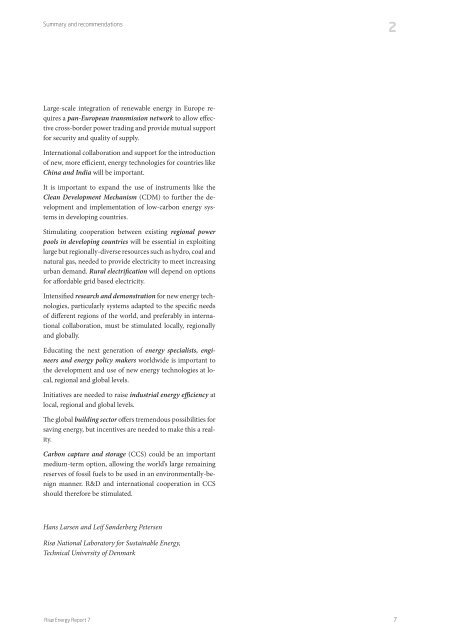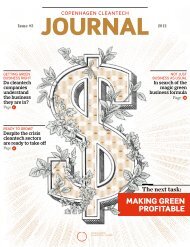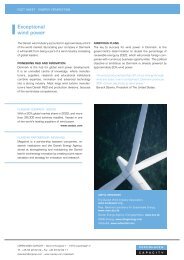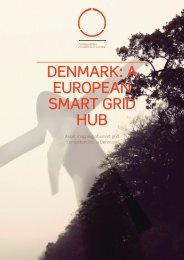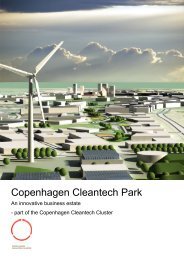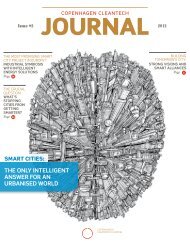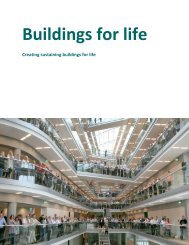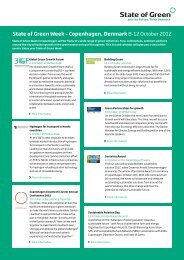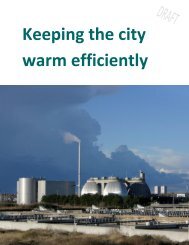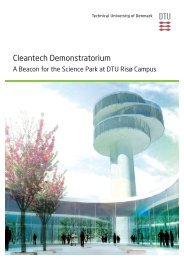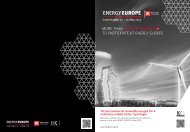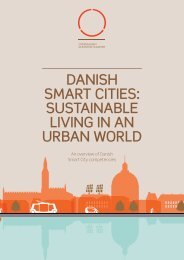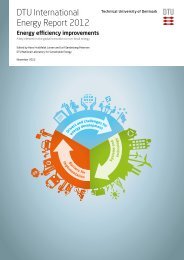Future low carbon energy systems - Copenhagen Cleantech Cluster
Future low carbon energy systems - Copenhagen Cleantech Cluster
Future low carbon energy systems - Copenhagen Cleantech Cluster
Create successful ePaper yourself
Turn your PDF publications into a flip-book with our unique Google optimized e-Paper software.
Summary and recommendations2Large-scale integration of renewable <strong>energy</strong> in Europe requiresa pan-European transmission network to al<strong>low</strong> effectivecross-border power trading and provide mutual supportfor security and quality of supply.International collaboration and support for the introductionof new, more efficient, <strong>energy</strong> technologies for countries likeChina and India will be important.It is important to expand the use of instruments like theClean Development Mechanism (CDM) to further the developmentand implementation of <strong>low</strong>-<strong>carbon</strong> <strong>energy</strong> <strong>systems</strong>in developing countries.Stimulating cooperation between existing regional powerpools in developing countries will be essential in exploitinglarge but regionally-diverse resources such as hydro, coal andnatural gas, needed to provide electricity to meet increasingurban demand. Rural electrification will depend on optionsfor affordable grid based electricity.Intensified research and demonstration for new <strong>energy</strong> technologies,particularly <strong>systems</strong> adapted to the specific needsof different regions of the world, and preferably in internationalcollaboration, must be stimulated locally, regionallyand globally.Educating the next generation of <strong>energy</strong> specialists, engineersand <strong>energy</strong> policy makers worldwide is important tothe development and use of new <strong>energy</strong> technologies at local,regional and global levels.Initiatives are needed to raise industrial <strong>energy</strong> efficiency atlocal, regional and global levels.The global building sector offers tremendous possibilities forsaving <strong>energy</strong>, but incentives are needed to make this a reality.Carbon capture and storage (CCS) could be an importantmedium-term option, al<strong>low</strong>ing the world’s large remainingreserves of fossil fuels to be used in an environmentally-benignmanner. R&D and international cooperation in CCSshould therefore be stimulated.Hans Larsen and Leif Sønderberg PetersenRisø National Laboratory for Sustainable Energy,Technical University of DenmarkRisø Energy Report 77


